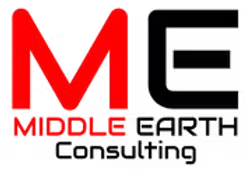Start with the spec, not just the geometry
A good object mirrors your product spec sheet. That means correct dimensions and connectors, but also clean parameters, materials, and classification so schedules and tags “just work.”
- Naming: Manufacturer, series, size, key options (no internal codes)
- Classification: Omniclass/Uniclass/IFC Type baked in
- Materials: PBR-aligned where relevant, with realistic roughness/reflectance
LOD that fits the job
Over-detailed families kill performance. We typically ship two levels: a design LOD for planning and documentation, and a visual LOD for close-up renders.
Design LOD
- Optimized polycount, symbolic lines for docs
- Reference planes, snap points, correct origin
- Essential connectors and clearance zones
Visual LOD
- Refined bevels and materials for hero shots
- Switchable via types or separate families
- Still lightweight enough for typical scenes
Parameters that specifiers actually use
- Type parameters for sizes and standard options
- Instance parameters for placement-specific data (mounting height, hand, comments)
- Shared parameters for schedules and tags across projects
- Yes/No visibility to toggle accessories and symbols
Performance and file hygiene
Keep families small and predictable. We target < 1–2 MB for design LOD in most categories, purge unused imports, and avoid nested CAD where possible.
- No hidden geometry or unused materials
- Low-res preview image and consistent family category
- Reference level and origin aligned for pain-free placement
IFC and downstream workflows
When delivering IFC, we map parameters to standard Property Sets, choose correct IfcType, and include GUID-stable elements so coordination tools recognize updates.
- IfcExportAs / IfcExportType set appropriately
- Key data in Pset_ManufacturerTypeInformation
- Keep object axes and insertion points consistent
Documentation that reduces RFIs
Include
- PDF data sheet with sizes and finishes
- Short placement notes and clearances
- Version history and contact for support
Avoid
- Marketing-heavy PDFs with no technical detail
- Unversioned files that break schedules
- Excessive detail that slows models
Delivery pack we provide
- Revit families (design + visual LOD) and category-appropriate types
- IFC export tested in Navis/Solibri class of tools
- Consistent parameters for schedules/tags, sample project file
- Material library with calibrated PBR maps where relevant
Want a BIM library specifiers stick with
We build and validate families with real project workflows, then package them for easy discovery and updates.
Request a BIM sample pack
